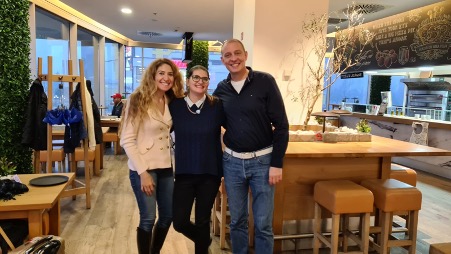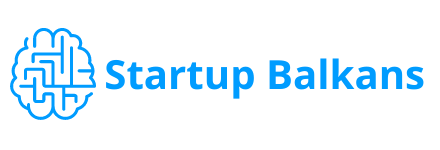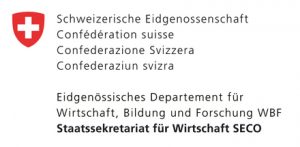As part of the Swiss Entrepreneurship Program, Cosmina Popa and I [Martin Bjergegaard] spent October and November 2021 living and working in Bosnia and Herzegovina (B&H). Our mission was to support the emerging startup ecosystem and tech scene. We spent most of the time in Sarajevo, but also had trips to Mostar and Banja Luka.
Here is what we learned, and our advice for local entrepreneurs and everyone else with an interest in tech, startups, and the Balkan region. We have identified 3 great strengths of the country, as well as 3 untapped potentials for the founders. First the strengths of the country.
Very strong tech talent
We were amazed to find such a huge amount of tech talent in a small country, and in a less developed startup ecosystem. There are several great outsourcing companies, not only in Sarajevo, but also in Mostar and Banja Luka. They are delivering top quality work to startups, scaleups as well as more established companies in Western Europe, the Nordics, and North America. Before we visited, we were not aware of this. Outsourcing is typically associated with India, Ukraine and Poland, but we had never thought about B&H as a strong player in this regard.
This big talent pool – relative to the small population size – can be a powerful building block when it comes to creating a strong startup ecosystem. In Denmark where I am from, we have high quality ideas and lots of people with strong business skills – but we often find ourselves struggling to recruit tech talent. B&H is the opposite, and I see a good opportunity for collaboration between the two countries.
Great design and UX skills
In addition to the hardcore coding skills, we were also delighted to see that the local outsourcing companies, as well as startups, are fully capable of building digital products that please the eye, and that are easy to use. This is key for anyone wanting to survive, and thrive, in the world of startups, tech and digitalisation. Some countries have high quality developers, but poor quality designers – and then they rely on precise instructions from teams abroad in order to build anything useful.
During our time in B&H we saw beautifully designed apps, websites and SaaS products, done by local designers and Heads of Product. The combination of strong coding capabilities and great design skills is a powerful platform for taking a step upward in the innovation value chain.
Stunning nature
The nature in B&H is stunning! We drove from Sarajevo to the Serbian border, and even though it took 5 hours to drive just 200 km, we truly enjoyed every minute of it. The mountains are so beautiful and picturesque. What the cities might still lack compared to where I am from, the nature more than outweighs. Driving south to Mostar, the climate totally changes and becomes mediterranean. Forrest makes way for rocks, and the energy switches from cozy to raw. Croatia has for some reason grabbed most of the waterfront, but Bosnia and Herzegovina still has 25 kilometres of coastline. We never made it there, and I am anyway not sure that one should visit B&H for the beaches. But waking up in Sarajevo, looking out of the windows, and seeing mountaintops all around the city was something we never got tired of. There is a magical, unspoiled and very healing vibe to B&H – which we had frankly never expected nor imagined before we went there.

And then to the potential for improvement. Here we focus on what local entrepreneurs can do, in order to create a thriving startup ecosystem that will benefit the whole country.
More original and scalable ideas
There are good ideas among the entrepreneurs in B&H, no doubt about it. But compared to more mature startup ecosystems, like London and Copenhagen, there is still some way to go. Many ideas are only relevant locally, and then of course they cannot grow very big, since the market size is limited. We suggest travelling, participating in international programs and accelerators, looking at idea databases and global startup blogs, etc. in order to become more accustomed to idea generation and evaluation.
These days, many outsourcing companies in B&H are expanding with a venture building arm, which we think makes a lot of sense. Money made on building tech for others can be invested in building your own ideas. But often we see that the CEO of the outsourcing company thinks that he should be the one to come up with these ideas, and then he appoints certain employees to work on the project. That is not a strong model, given that the team lacks the drive which comes from coming up with the idea yourself. A better model is to do like Digiqal, an outsourcing company that originated in Mostar and Sarajevo but is now also present in Denmark, Germany and Hong Kong. Digiqal encourages their employees to come up with ideas that can be turned into new ventures.
Have a clear ask
We met many entrepreneurs during our two months in Sarajevo, Banja Luka and Mostar. We really wanted to help. But it was not always easy, since the local founders were not very clear about how we could help. As much as we appreciate that they don’t come across as self serving and grabbing, and seem to have a genuine interest in getting to know you, it is difficult to be helpful if there is no clear ask. Our suggestion for these founders – and anyone else for that matter – is to end the presentation, or the meeting, by in plain language sharing what you really could use help with. Are you out to fundraise, do you need a trial customer, do you want feedback on anything specific, are you looking for a partner abroad?
Ask and you shall receive. This goes for startup founders everywhere, but in B&H it seemed to us to be particularly difficult for the founders to have a clear ask. Maybe they were shy, maybe they were proud, it’s hard to say. But neither shyness nor pride is useful when you want to create a new company from scratch.
Better follow up
With a few exceptions the entrepreneurs, as well as other ecosystem players, in B&H did not follow up after a meeting. This is a huge mistake, but of course not unique to the Balkans. However, in the countries where we have worked the most, Denmark, Germany, Sweden, Netherlands, UK and US, people are generally good at following up. So it seemed a bit strange to us that we had spent some good hours together, and then there was no effort to stay in touch afterwards. As an entrepreneur you need to engage people, and being consistent is key. Why make a big effort in a meeting, or at an event, if you are not going to follow up afterwards? There were a few notable exceptions, and the result is that we want to help them, and to work with them. Stay tuned for the first joint venture coming up!
Our time in the Balkans was definitely worth it, and the adventure is only just getting started. Next up: Tirana!
About Martin: Martin Bjergegaard is an author, altruist and invertor. His purpose is to support startups that want to build healthy and profitable companies that are making a real difference in the lives of their customers. Proficient in venture building, startup investing, sustainability, and all things entrepreneurship, Martin is very passionate about startups. He gave a couple of TEDx speeches and wrote three books on entrepreneurship. In 2021, Martin and his partner Cosmina Popa became Swiss EP Entrepreneurs in Residence. They first visited Bosnia and Herzegovina, and in early 2022 they went to Albania.




